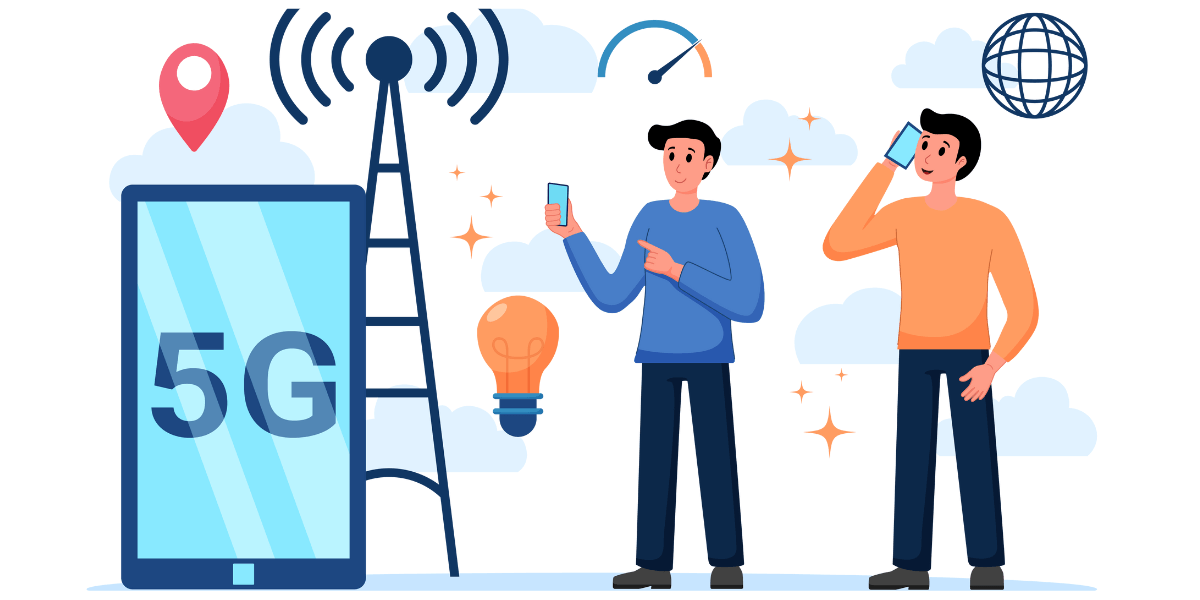The Impact of Technology on Modern Business
Business and Technology are inseparably connected. Digital transformation is taking place across every industry. It is not just about a bunch of hot new technologies. It is the new work culture.
Also, it has been possible due to the high-speed network.
Companies like Uber have delivered more convenient, responsive, and engaging customer experiences – and often disrupted entire industry business models while doing so.
And if you own a business, you are supposed to build your digital transformation journey.
Digital technology is taking learning to the next plateau. Technologies like AI (Artificial Intelligence), ML (Machine Learning), and Big Data can power digital business. And if you are a business student, you should know how to succeed in this digital age and blend business with technology. You don’t need to become a technical expert; you need to understand how to run a company that uses the technology. In the current scenario, data is the king, data is the new oil. And these emerging technologies are nothing but analyzing the data.
For continuous life-long learning, there is a need for agility. Agility refers to the ability to move quickly and easily, which means there is no other way but to re-invent.
The future is Volatile!
First of all, start thinking long term and have a view about the future, work back to today, and build strategies as steps towards that future, not an extension of the present day. And second, create a strategy that has thought through customer behavioral trends, where to play in the market, and how to apply capabilities of new technology.
Emerging digital technologies have generated new opportunities while creating new legal challenges, particularly related to copyrights, trademarks, patents, royalties, and licensing. For example, the development of new digital communication technologies and media has given rise to novel issues relating to the digital reproduction and distribution of copyrighted works. There are emerging technologies that you should be aware of:
Artificial Intelligence: The term Artificial Intelligence was coined in 1956, but AI has become more popular today because of the increased data volumes, advanced algorithms, and improvements in computing power and storage.
Artificial intelligence (AI) is a wide-ranging branch of computer science concerned with building intelligent machines capable of performing tasks that typically require human intelligence. AI is an interdisciplinary science with multiple approaches, but advancements in machine learning and deep learning are creating a paradigm shift in virtually every sector of the tech industry.
Big Data: Big Data means big potential. Big data can play an invaluable role in helping businesses succeed is not a secret anymore. Its potential has remained largely untapped, with Forrester reporting that only 29% of businesses are successful at converting analytics into action.
The use of these insights is often restricted to marketing activities, and while that is definitely important, big data can also be leveraged to devise or tweak a brand’s offerings. For instance, a study in the USA sifted through more than 900,000 food reviews to find that sandwiches with bacon see the biggest improvements in ratings. Insights like these can help ventures optimize their offerings to align with customers’ tastes, thereby maximizing profits.
Cloud computing: Cloud computing is usually described in one of two ways. Either it’s based on the deployment model or on the service that it is offering.
Cloud computing can be used to perform a wide variety of lengthy, compute-heavy tasks. Corporate and government entities utilize cloud computing services to address a variety of application and infrastructure needs such as CRM, database, computing, and data storage.
Blockchain: Blockchain technology is changing the way companies operate across all industries, including banks and financial institutions in reducing transaction processing time and costs; insurance companies in processing claims and storing policies; life sciences and pharmaceutical companies in identifying and tracking medication and equipment; and food, agriculture, and industrial companies in improving supply chain coordination, to name a few.
Quantum Computing: Let’s begin with understanding quantum computing. While standard computers are built on classical bits, every quantum computer has a qubit or quantum bit as its building block. Thus, unlike a classical computer where information is stored as binary 0 or 1 using bits, a quantum computer harnesses the unique ability of subatomic participles in the form of a qubit which can exist in a superposition of 0 and 1 at the same time. As a result, quantum computers can achieve higher information density and handle very complex operations at speeds exponentially higher than conventional computers while consuming much less energy.
Quantum computing is no ordinary technology. It has attracted huge interest at the national level with funding from governments. Today, some of the biggest technology giants are working on the technology, investing substantial sums into research and development, and collaborating with state agencies and corporates for various projects across industries.
Edge Computing: In essence, edge computing optimizes cloud computing systems by performing data processing at the edge of the network, near the source of the data. This method reduces the communications bandwidth needed between sensors and the central data center by performing analytics and knowledge generation at or near the start of the data. In other words, it refers to data processing power at the edge of a network instead of holding that processing power in a cloud or a data center.
Machine Learning: Machine learning (ML) is a large field of study that overlaps with and inherits ideas from many related fields such as artificial intelligence. The focus of the field is learning, that is, acquiring skills or knowledge from experience. Most commonly, this means synthesizing useful concepts from historical data.
When do we need machine learning rather than directly programming our computers to carry out the task at hand? Two aspects of a given problem may call for the use of programs that learn and improve on the basis of their “experience”: the problem’s complexity and the need for adaptivity.
Technology is changing our business world with things like Bitcoin, chatbots, and robotics. Unfortunately, many small businesses aren’t quickly adapting to these changes even though they’re rapidly entering the mainstream. What they fail to understand is that implementing just one of these innovations will make an immediate, visible impact on their sales and revenue. This is why it’s important to pause and consider each of them individually today.




